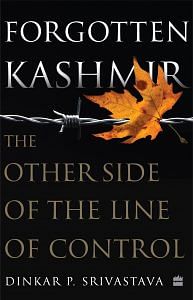Pakistan’s cabinet secretary issued a circular on 6 June 1988, which
stated, ‘Although Azad Kashmir is not part of Pakistan under Articles
1(2)(d) of the Constitution, it should, for all practical purposes, be
treated like any other province of the Federation.’ Though it seemed to
be a routine communication about the distribution of work, it carried an
important message. PoK was to be treated like any other province of
Pakistan in terms of Islamabad’s control, while maintaining the legal
fiction that it was a distinct territory awaiting plebiscite. This was,
of course, not the first time that it had happened. It may be recalled
that in 1971, Ghulam Ishaq Khan as cabinet secretary had issued a
similar circular. Conferring an Interim Constitution on the territory in
1974 had made no change in ground realities.
Zia’s reaction to Siachen was muted. Brian Cloughley in his book A
History of the Pakistan Army has mentioned that ‘Zia was concerned about
his soldiers in the north’, given the harsh conditions in the region.
‘Zia expressed regret about the futility of operations in Siachen.’
Pakistan has the advantage of having shorter lines of communication to
Siachen. Cloughley, who was Zia’s guest in September 1985, asked him
about the solution of the whole Kashmir problem: ‘What, he was asked, if
an offer was made to India to have the Line of Control declared the
international border? …No, Zia said. He had a political problem anyway
with the Kashmiris and didn’t want an uprising, as would surely happen
if they thought he was dealing with India behind their backs.’
Zia hardly cared for the sensibilities of the people of PoK. For much of
his rule, there was no elected government in the territory. He wanted to
keep open the option of revising the territorial status quo in Kashmir.
While denying freedom and democracy to the people of PoK, Pakistan was
keen to promote Azadi in the Indian state of Jammu and Kashmir.
Amanullah Khan, who had returned to Pakistan from the UK, set up the
headquarters of his organization, the JKLF, in Muzaffarabad in 1984.
This could not have been possible without the support of authorities in
an area where even normal political activities were not allowed.



